
THE VOICE OF INTERNATIONAL LITHUANIA
|
VilNews has its own Google archive! Type a word in the above search box to find any article.
You can also follow us on Facebook. We have two different pages. Click to open and join.
|
Author Archive
Lithuania’s problems are systemic and they will take a generation to fix, that is, if there is constant pressure on the government from the people. If there isn’t, it will take much longer, maybe forever…
- Posted by - (0) Comment
![]()

Vyto Be You can't just change a few faces in the elections, and expect results. The problems are systemic and they will take a generation to fix, that is, if there is constant pressure on the government from the people. If there isn't, it will take much longer, maybe forever...
- Bookmark :
- Digg
- del.icio.us
- Stumbleupon
- Redit it
LT should have banned anyone who had affiliation with the communist regime. Now it is so bad that something needs to be done
- Posted by - (0) Comment
![]()

Peter Treska There has been so much corruption since gaining independence. LT should have banned anyone who had affiliation with the communist regime. Now it is so bad that something needs to be done.
- Bookmark :
- Digg
- del.icio.us
- Stumbleupon
- Redit it
- Posted by - (0) Comment
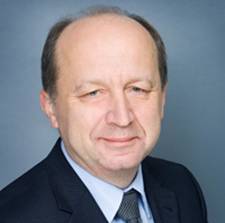
Swiss business school:
Lithuania shows the way
Lithuania is the most improved economy in new global competitiveness rankings, proving that austerity measures can pay dividends, according to a survey by Swiss business school IMD.
A protestor is arrested during a 2009 riot over austerity measures (Photo credit: Getty)
The unpopular policies taken by Lithuania to put its economy in order in 2008-9 were rewarded with a nine-point jump to 36th place out of 59 economies in the rankings.
The Swiss business school ranks economies in terms of competitiveness, after rating their success in managing their economic, business and human resources.
In early 2009, there were riots on the streets of Vilnius, the capital of Lithuania, as the government forced through severe economic sanctions. Local people were furious at tax hikes: “The government has long neglected the social needs of the people, pensioners and others,” Algirda Paleckis, leader of the Frontas radical left party, told Reuters.
But the measures worked. In the first quarter of this year, the Lithuanian economy grew by 3.9%, on the back of stronger domestic demand, rising exports and a jump in construction output. Other Baltic economies also improved, with Estonia rising two places to 31.
- Bookmark :
- Digg
- del.icio.us
- Stumbleupon
- Redit it

The new generations are leaving the country in droves and very few from the country's diaspora groups plan to come home to contribute to the reconstruction of this once fine and proud country.
Our series of articles through April and May has revealed enormous discrepancies between Lithuania's current leadership and the large group of Lithuanians living outside their homeland.
It is assumed that the country's best educated and economically active segment of the population now lives in Western Europe, the USA and sometimes other countries, but that today's leaders do not do much to reach out to them, start the kind of communication that is necessary to get this country on its feet again.
Obviously, this is tragic. All Lithuanians love their homeland, but feel that the government and the leadership generally do little to facilitate for the country to grow healthy and successful.
Meanwhile, the young, non corrupt professionals are very reluctant to assume political office. "We do not want to stick your hand into this overgrown wasp's nest," we have heard several say. The result is that the new generations are leaving the country in droves and that very few from the country's diaspora groups plan to come home to contribute to the reconstruction of this once fine and proud country.
We proposed a few days ago that Lithuanians outside their home country should start coming back home to contribute to new growth and better living conditions here. These are some of the responses we have recorded.
----------------------------------------------------------------------------------------------------------------------

Viktorija Ruškulienė
Once only corrupt government and retired elderly are left, Lithuania's economy will reach the very bottom and push itself up
Once only corrupt government and retired elderly are left, Lithuania's economy will reach the very bottom and push itself up: things will start to change, hopefully for the better. As there will be no one to be robbed, the ex-KGB-today-"democratically"-elected-mob-government will follow the path of their foreign invested funds and retire outside of Lithuania. Hopefully there still will be some Lithuanians willing to return back to their homeland...
Some more realistic politicians suggest to open Lithuanian job market for Belarus young professionals and political refugees, with a promise of European citizenship after 7 years working and paying taxes in Lithuania. This will become some "injection" to keep economy floating at the level it is today, but what will happen if Belarus elects new government and joins EU? Will people from Asia's developing countries be interested in cold climate and hopeless economy refuge?
Lithuania loves money, sent by expatriates, though...
----------------------------------------------------------------------------------------------------------------------
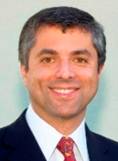
Grant Gochin
Lithuania does NOT love the expatriate community. If the country of Lithuania rejects us, why maintain our Lithuanian identity?
Lithuania does NOT love the expatriate community. Rather, LT does EVERYTHING possible to reject them. Loyalty has to work both ways. The days of the state being a slave-master and the citizens being mindless obedient drones are over.
If the country of Lithuania rejects us, why maintain our Lithuanian identity?
The people have to protest. If nobody does, nothing will improve.
- Bookmark :
- Digg
- del.icio.us
- Stumbleupon
- Redit it

The new generations are leaving the country in droves and very few from the country's diaspora groups plan to come home to contribute to the reconstruction of this once fine and proud country.
Our series of articles through April and May has revealed enormous discrepancies between Lithuania's current leadership and the large group of Lithuanians living outside their homeland.
It is assumed that the country's best educated and economically active segment of the population now lives in Western Europe, the USA and sometimes other countries, but that today's leaders do not do much to reach out to them, start the kind of communication that is necessary to get this country on its feet again.
Obviously, this is tragic. All Lithuanians love their homeland, but feel that the government and the leadership generally do little to facilitate for the country to grow healthy and successful.
Meanwhile, the young, non corrupt professionals are very reluctant to assume political office. "We do not want to stick your hand into this overgrown wasp's nest," we have heard several say. The result is that the new generations are leaving the country in droves and that very few from the country's diaspora groups plan to come home to contribute to the reconstruction of this once fine and proud country.
We proposed a few days ago that Lithuanians outside their home country should start coming back home to contribute to new growth and better living conditions here. These are some of the responses we have recorded.
----------------------------------------------------------------------------------------------------------------------

Viktorija Ruškulienė
Once only corrupt government and retired elderly are left, Lithuania's economy will reach the very bottom and push itself up
Once only corrupt government and retired elderly are left, Lithuania's economy will reach the very bottom and push itself up: things will start to change, hopefully for the better. As there will be no one to be robbed, the ex-KGB-today-"democratically"-elected-mob-government will follow the path of their foreign invested funds and retire outside of Lithuania. Hopefully there still will be some Lithuanians willing to return back to their homeland...
Some more realistic politicians suggest to open Lithuanian job market for Belarus young professionals and political refugees, with a promise of European citizenship after 7 years working and paying taxes in Lithuania. This will become some "injection" to keep economy floating at the level it is today, but what will happen if Belarus elects new government and joins EU? Will people from Asia's developing countries be interested in cold climate and hopeless economy refuge?
Lithuania loves money, sent by expatriates, though...
----------------------------------------------------------------------------------------------------------------------

Grant Gochin
Lithuania does NOT love the expatriate community. If the country of Lithuania rejects us, why maintain our Lithuanian identity?
Lithuania does NOT love the expatriate community. Rather, LT does EVERYTHING possible to reject them. Loyalty has to work both ways. The days of the state being a slave-master and the citizens being mindless obedient drones are over.
If the country of Lithuania rejects us, why maintain our Lithuanian identity?
The people have to protest. If nobody does, nothing will improve.
- Bookmark :
- Digg
- del.icio.us
- Stumbleupon
- Redit it
- Posted by - (0) Comment
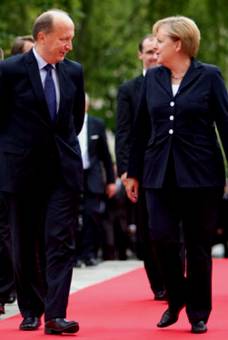
Prime Minister
Andrius Kubilius:
We support Germany's side concerning fiscal discipline
State's economy cannot grow without saving, says Lithuanian Prime Minister Andrius Kubilius, stressing that Lithuania supports the German side which is in favour of fiscal discipline and saving.
Kubilius says that some countries which have failed to save now suggest resorting to even greater spending, thinking that higher spending would spur economic growth, informs LETA/ELTA.
"Growth and saving always go together. One cannot even dream about the economic growth if the state finances are not stable and there is little trust in the state's finances on the global markets. Therefore, in the French-German debates where France says that saving should be put to an end in order to achieve growth and Germany claims that saving plans must not be abandoned, we clearly support the German side, as I have clearly stated it previously," he said in a telephone interview to the radio Ziniu Radijas from Germany, where the PM is for the Baltic Sea States Summit.
In reaction to the new French President Francois Hollande's statements that the economy cannot expand there where only the disciple is found, Lithuanian PM said that the example of Lithuania and other Baltic States shows the opposite: the economy recovers quickly when the state keeps a strict fiscal discipline.
- Bookmark :
- Digg
- del.icio.us
- Stumbleupon
- Redit it
- Posted by - (0) Comment
Need some peace of mind?
Try a boat trip on the
Nemunas and a spa visit
to beautiful Birštonas!
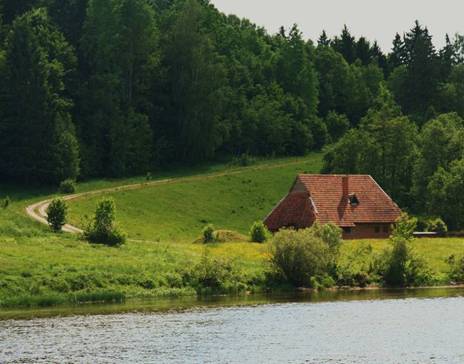
An old house on the Nemunas river bank near Birštonas
Text and photos: Aage Myhre
aage.myhre@VilNews.com
Lithuania’s largest river, the Nemunas, is a slow and peaceful river; with an average speed of only 1 to 2 m/s. Its total length of 937 km makes it the 14th largest river in Europe. 459 km flow in Belarus, 359 km in Lithuania. Well, we called it peaceful, but if you agree to join us for a trip to the small resort town of Birštonas, one hour’s drive from Vilnius, you will soon realise that it’s right here that Nemunas gets a bit crazy, making four large loops without any other reason than this that Birštonas needed some special attention and minerals that over the centuries has made it such an attractive spa resort. Birštonas is suitable for therapy and recreation all year round with its curative peat and mineral water used in treating chronic diseases of peripheral nervous system, gastrointestinal, respiratory and blood circulation systems. The first patients were treated in Birštonas as early as 1840. Enjoy!
Rūta Kapočinskaitė is my Birštonas heroine. She has understood what it takes to represent a tourist destination with energy and genuine attention to the visitor - much more so than representatives of the majority of destinations in this country. So, if you are a Lithuanian working in the tourist trade, don’t miss the chance to learn from Rūta. It takes enthusiasm to promote a destination, and Rūta has got plenty of exactly that. She is simply good!
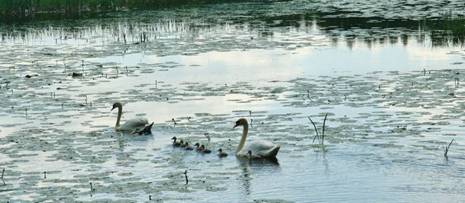
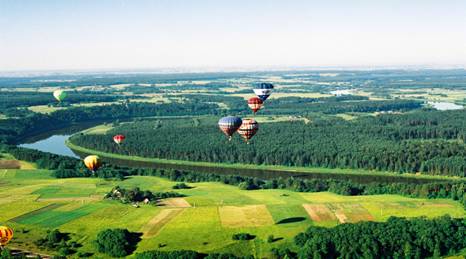
- Bookmark :
- Digg
- del.icio.us
- Stumbleupon
- Redit it
- Posted by - (0) Comment

First ISAF cargo reaches Lithuania from Afghanistan
The first International Security Assistance Force (ISAF) non-military cargo has been safely delivered to Klaipeda State Seaport from Afghanistan, Lithuania's Ministry of Foreign Affairs said.
A total of 76 containers will be further shipped to the United States by sea. This is a result of concentrated and coordinated cooperation between all Lithuanian state institutions and companies in the transport sector, writes LETA/ELTA.
Making use of its unique geopolitical position between the EU and Eastern Neighbourhood countries and intensively cooperating with the U.S. administration, transport and logistics partners, Lithuania has developed new multimodal ISAF cargo transport schemes. The schemes exploit the potential of Lithuanian transport infrastructure and carriers. After the assessment of these circumstances, Lithuania was entrusted with the U.S. ISAF cargo transit via Klaipeda State Seaport.
Lithuania transports the U.S. ISAF cargo from and to Afghanistan via Klaipeda State Seaport and, thus, is part of the Northern Distribution Network, which was established by the United States and the Baltic States as an intermodal route of transportation to ship NATO non-military ISAF cargo to Afghanistan.
The ISAF cargo transportation is useful not only because of the income, but also for the accumulating experience of cargo logistics to Afghanistan. After 2014, when forces of NATO countries will leave Afghanistan, Lithuania will have already established itself in international Asian transit corridors. That will also help other countries to implement their commercial or development cooperation projects in Asia in the future.
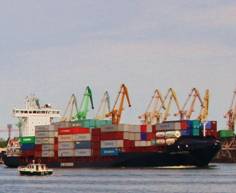
- Bookmark :
- Digg
- del.icio.us
- Stumbleupon
- Redit it
Who would want to come back to a country that strives on discrimination, racism, injustice and corruption?
- Posted by - (0) Comment
![]()

Martynas Karys Lithuania is no longer my home, who would want to come back to a country that strives on discrimination, racism, injustice and corruption? A country that has comedians in power positions ( literarily ) and thugs "acting" police. A country that refuses to allow double citizenship status and demands loyalty while it gives nothing back. Don't get me wrong, I love my country ( Lithuania ) but I do not like the situation that is currently there, if there will be no major changes any time soon, there will be no more Lithuania in a couple of decades.
- Bookmark :
- Digg
- del.icio.us
- Stumbleupon
- Redit it
Come back and fight instead of running away
- Posted by - (0) Comment
![]()

Vincent Degeorge so come back here stand and fight for the beauty of this country instead to run away
- Bookmark :
- Digg
- del.icio.us
- Stumbleupon
- Redit it
My country does not love me…
- Posted by - (0) Comment
![]()

Monika Valkauskaite My country does not love me...it does not respect me nor does it care for human rights...i am very proud to be born in a beautiful country with strong traditions and ancient language...and i will make sure my kids speak Lithuanian...however, i am not proud of what has become of it....immigration is the best that has happened to Lithuanian people since the independence...Martynas Karys is absolutely right! It is scandalous in so many aspects!
- Bookmark :
- Digg
- del.icio.us
- Stumbleupon
- Redit it
Until there is a war or some kind of big conflict i don’t see any change in Lithuania anytime soon
- Posted by - (0) Comment
![]()

Rokas Balbo until there is a war or some kind of big conflict i don't see any change in Lithuania anytime soon because the government like everywhere is corrupt the people hate on each other just to much to list...
- Bookmark :
- Digg
- del.icio.us
- Stumbleupon
- Redit it
The problems in Lithuania are many and complex, but we think it is worth trying to make a difference, if we can, even in one Lithuanian’s life
- Posted by - (0) Comment
![]()

Carol Zupkas My husband's grandparents immigrated to America 100 years ago. In 2009 we moved to Lithuania and it is where we live most of the time now. I think about the story where there were 1000s of star fish on the sea shore. A man walked by a little girl as she picked one up and threw it back into the ocean. He stoped and asked her, "Do you think what you are doing will make a difference?" As she threw another star fish into the water she replied, "To this one it will." The problems in Lithuania are many and complex, but we think it is worth trying to make a difference, if we can, even in one Lithuanian's life.
- Bookmark :
- Digg
- del.icio.us
- Stumbleupon
- Redit it
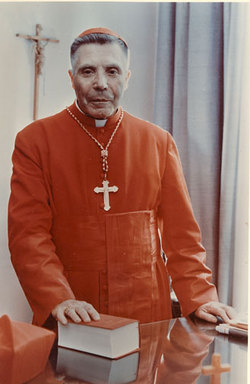
Vincentas Sladkevičius, MIC
(August 20, 1920—May 28, 2000)
Vincentas Sladkevičius, MIC (August 20, 1920—May 28, 2000) was a Lithuanian Cardinal of the Roman Catholic Church. He served as Archbishop of Kaunas from 1989 to 1996, and was elevated to the cardinalate in 1988.
Vincentas Sladkevičius was born in Žasliai, Kaišiadorys, to Mykolas Sladkevičius and his wife Uršule Kavaliauskaite. He was the youngest of five children, his siblings being named Ona, Emilija, Jonas and Marija. After studying at the Kaunas Priest Seminary and Theological Faculty in Kaunas, Sladkevičius was ordained to the priesthood on March 25, 1944. He then did pastoral work in Kaišiadorys until 1959, including serving as a professor and the prefect of studies and discipline at the Kaunas seminary.
On November 14, 1957, Sladkevičius was appointed Auxiliary Bishop sedi datus of Kaišiadorys and Titular Bishop of Abora. He received his episcopal consecration on the following December 25 from Bishop Teofilius Matulionis. However, Bishop Sladkevičius was impeded from performing his ministry by his country's Communist government, and he took up residence at Nemunėlio Radviliškis, where he was under virtual house arrest from 1963 to 1982. He was named Apostolic Administrator ad nutum Sanctae Sedis of Kaišiadorys on July 15, 1982, and became President of the Lithuanian Episcopal Conference on April 27, 1988.
Pope John Paul II created Sladkevičius Cardinal Priest of Spirito Santo alla Ferratella in the consistory of June 28, 1988, and later Archbishop of Kaunas on March 10, 1989. In 1993 the Cardinal entered the Congregation of the Marian Clerics of the Immaculate Conception. He resigned as Kaunas' archbishop on May 4, 1996, after seven years of service. He was awarded the Order of Vytautas the Great in 1998.
V. Sladkevičius died in Kaunas, at age 79. He was buried in the Cathedral-Basilica of Kaunas following a funeral Mass there on June 1, 2000.

An article by KR Slade
- Bookmark :
- Digg
- del.icio.us
- Stumbleupon
- Redit it

Vincentas Sladkevičius, MIC (August 20, 1920—May 28, 2000) was a Lithuanian Cardinal of the Roman Catholic Church. He served as Archbishop of Kaunas from 1989 to 1996, and was elevated to the cardinalate in 1988.
Vincentas Sladkevičius was born in Žasliai, Kaišiadorys, to Mykolas Sladkevičius and his wife Uršule Kavaliauskaite. He was the youngest of five children, his siblings being named Ona, Emilija, Jonas and Marija. After studying at the Kaunas Priest Seminary and Theological Faculty in Kaunas, Sladkevičius was ordained to the priesthood on March 25, 1944. He then did pastoral work in Kaišiadorys until 1959, including serving as a professor and the prefect of studies and discipline at the Kaunas seminary.
On November 14, 1957, Sladkevičius was appointed Auxiliary Bishop sedi datus of Kaišiadorys and Titular Bishop of Abora. He received his episcopal consecration on the following December 25 from Bishop Teofilius Matulionis. However, Bishop Sladkevičius was impeded from performing his ministry by his country's Communist government, and he took up residence at Nemunėlio Radviliškis, where he was under virtual house arrest from 1963 to 1982. He was named Apostolic Administrator ad nutum Sanctae Sedis of Kaišiadorys on July 15, 1982, and became President of the Lithuanian Episcopal Conference on April 27, 1988.
Pope John Paul II created Sladkevičius Cardinal Priest of Spirito Santo alla Ferratella in the consistory of June 28, 1988, and later Archbishop of Kaunas on March 10, 1989. In 1993 the Cardinal entered the Congregation of the Marian Clerics of the Immaculate Conception. He resigned as Kaunas' archbishop on May 4, 1996, after seven years of service. He was awarded the Order of Vytautas the Great in 1998.
V. Sladkevičius died in Kaunas, at age 79. He was buried in the Cathedral-Basilica of Kaunas following a funeral Mass there on June 1, 2000.

An article by KR Slade
. . . . . . . . . . .
August 20, 1920
Vincentas
Sladkevicius, the youngest of five children, is born in the village of Guronys
-- a village in the parish of the small town of Zasliai (in central Lithuania),
which is equidistant from Vilnius and Kaunas, and close to the towns of
Kaisiadorys and today's Electrenai). His parents, and extended family all
living in the same village for 200+ years, are peasant farmers.
. . . . . . . . . . .
March 25, 1944
ordained a
Catholic priest; pastoral work in Kaisiadorys until 1959, including serving at
the Kaunas seminary as a professor and as the prefect of studies and
discipline.
. . . . . . . . . . .
November 14, 1957
appointed Titular
Bishop of Abora, and appointed Auxiliary Bishop 'sedi datus' (i.e., to become
bishop upon the death of the incumbent bishop) of Kaisiadorys; consecrated
December 25, 1957.

. . . . . . . . . . .
1959 to 1976
'Internal exile'
and under virtual house arrest: in the small town of Nemunelio Radviliskis (in
Birzai district municipality, in Panevezys County, northern Lithuania on the
border with Latvia; 2001 census, population 729).
. . . . . . . . . . .
July 15, 1982
appointed (by Pope
John Paul II) Apostolic Administrator of the diocese of Kaisiadorys.

. . . . . . . . . . .
July 15, 1982
named Apostolic
Administrator ad nutum Sanctae Sedis ("at the disposition of the
Holy See" -- refers to any circumstance involving a conflict of
ecclesiastical jurisdiction) of Kaisiadorys.
. . . . . . . . . . .
April 27, 1988
became President
of the Lithuanian Episcopal Conference.
. . . . . . . . . . .
1979
named ['in
pectore' (i.e., 'in the breast', meaning 'heart'; secretly)] a cardinal by
(and known only to) the Pope: to protect him or his congregation from reprisals
if his identity were known.
. . . . . . . . . . .
June 28, 1988
elevated publicly
to the College of Cardinals, when it was made public that in 1979 he had been
secretly named a cardinal





. . . . . . . . . . .
16 February 1989
Cardinal Vincentas
Sladkevicius, for the first time, called for the independence of Lithuania in
his sermon at the Kaunas Cathedral. After the services, 200,000 persons
gathered in the centre of Kaunas to participate in the dedication of a new
monument to freedom to replace the monument that had been torn down by the
Soviet authorities after World War II.
[Note: March 11, 1990 The Act of the Re-Establishment of the State of Lithuania was an independence declaration by the Supreme Soviet (i.e. Legislature) of the Lithuanian Soviet Socialist Republic It was the first time that a Union Republic declared independence from the dissolving Soviet Union.]


. . . . . . . . . . .
March 10, 1989
named Archbishop
of Kaunas on March 10, 1989; he resigned as Kaunas' archbishop on May 4, 1996,
having reached the age of mandatory retirement.
. . . . . . . . . . .
1993
the Cardinal
joined the religious order, the Congregation of the Marian Clerics of the Immaculate
Conception. Henceforth, the initials 'M.I.C.' appear after his name, indicating
that he is a member of such religious order.
. . . . . . . . . . .
1990 until his
death on 28 May 2000
Cardinal Vincentas
Sladkevicius lived in the Kaunas Palace of Bishops (M. Valanciaus g. 6, which
is directly-beside the front of the Kaunas cathedral), where he died.
. . . . . . . . . . .
2000
The
cardinal approved the establishment of the Sacral Art Museum in Birstonas
(Birutes Street 8, Birstonas, LT)
http://www.muziejai.lt/Birstonas/Sacral_Birstonas.en.htm
The Museum, near the parish church of Saint Anthony of Padova, is the former
rectory where then-Bishop Sladkevicius lived during his decades-long 'internal
exile' from his cathedral-seat in the town of Kaisiadorys (LT). The museum
presents two main memorial expositions; one is dedicated to Vincentas
Sladkevicius, who became Lithuania's second cardinal in history; the other is
dedicated to Teofilis Matulionis, the martyred Archbishop.


. . . . . . . . . . .
In the first decade of the 21st century
1) The Kaisiadorys bishop's office, at Kestucio gatve 44 (in Kaisiadorys), has maintained a room, open to the public, and dedicated to the memory of Cardinal Sladkevicius.
2) The diocese of
Kaisiadorys has built the 'Cardinal Sladkevicius Memorial Park' -- a rosary
park, conference centre, and monastery -- in his native village of Guronys,
near the small town of Zasliai.
The Park
is about one/two km from the 'Zasliai train station' (which is actually in
Guronys village, and not in Zasliai); Zasliai train station to the Zasliai
(St. Jurgis) church is 3.6 km; Vilnius-Kaunas highway to Zasliai train station
is 4 km.
From the
Zasliai train station to the Park, the narrow road passes a wooden-cross
monument dedicated to the birthplace of Cardinal Sladkevicius. However, his
actual birthplace (and where he lived until his father died) is one of a group
of three or four houses (on both sides of the road), only a few meters past
this cross-monument.
Some 800
meters further is the Park -- on the exact location of the land of the 200+
years former farmstead of the Sladkevicius family, where the cardinal lived
from when he was about nine years old, after his father died. In addition to
the monastery and conference centre, there is the rosary park: a circle of
five (5) small structures / 'chapels' in a circle. These structures, with ~4 m2
walls, have no doors or windows. In the centre of the circle is a larger
chapel. On the exterior walls of the small chapels, are murals: on the top of
each wall are biblical scenes, and on the bottom are scenes from the history of
Catholicism in Lithuania.


. . . . . . . .
. . .
4 February 2005
I [together with
Fr. J. Farrell Peternal, of Vilnius] visited the Kaunas arch-cathedral, where
in the main chapel (to the right of the altar) he is buried in the floor.

To the left of the front of the arch-cathedral is the 'bishop's palace' where the cardinal lived from when he was archbishop and until his death.

Since his death,
his former residence has become the 'Cardinal Sladkevicius Museum' (of Kaunas) http://kaunas.lcn.lt/03/muziejus/index.html
http://www.muziejai.lt/prev_vers/Kaunas/Sladkeviciaus_muz.htm#Kardinolo
V. Sladkevičiaus muziejus
The museum
exhibition (in 2005) consisted of memorial and literary sections. The memorial
section contains three authentically restored rooms of the Cardinal's
apartment. Restored pieces of memorial furniture are exposed in his
office/study and in his bedroom. In the library, visitors can see restored
bookcases. The large parlour is also furnished with restored memorial
furniture. On the occasion of the Museum’s opening, the Kaunas Archdiocese had
a portrait of the Cardinal made by the painter A. Vaitkunas. The decor and
furnishings were not luxurious.
At the
museum, we met with the director, Irena Petraitiene. She has written two books
about the cardinal. The first book, Kardinolas: Jo Eminencijos Vincento
Sladkeviciaus Laikas ir Asmenybe, was published in 2000, a couple of months
before his death. When he saw the book, he asked her, "Why did you do
that?" Her second book, Padaryk Mane Gerumo Zenklu -- Prisiminimai
apie kardinola Vincenta Sladkeviciu, was published in 2003, in Kaunas by:
Kardinolo V Sladkeviciaus memorialinis butas-muziejus (i.e. the museum).
She
related to us: ". . . (she) arrived here, to write a story about him, the
summer before he died" . . . "(she) was present at the time of his
death" . . . (about his childhood, in poverty) "two months a year,
they ate bread and strawberry jam" . . . "when he was a child, he had
problems with his legs; rickets" . . .
"When
he was in 'internal exile', his mother (i.e. Ursule Sladkeviciene 1885 to 1970)
was living with him; she died, and he found a farmer to transport him and her
body back to their hometown of Zasliai, where she is buried -- directly in
front of and facing the parish church of St. George" . . .
"He
was sick for six to seven years before his death" . . . "prostate
cancer" . . . "he would not take conventional medicines, or medical
treatments" . . . "he took homeopathic medicines" . . . he
said, "I will suffer like Christ on the cross" . . .
"He
died in his bed; the same bed that is in the other room, here" . . .
"the priest giving the last rites, said, 'Lord, open the gates of heaven,
for your servant' . . . " that is when he passed away."
- Bookmark :
- Digg
- del.icio.us
- Stumbleupon
- Redit it
![]()
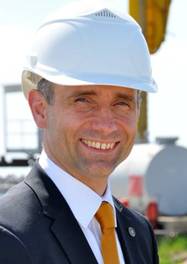
Rokas Masiulis, General Manager
of Klaipedos Nafta
Lithuania’s planned floating liquefied natural-gas terminal on the Baltic sea will have the capacity to supply neighboring Baltic countries.
The floating storage regasification unit could supply neighboring Latvia either via gas pipelines or by shipping the vessel to the country’s port in Riga, Rokas Masiulis, chief executive officer of Lithuania’s oil terminal Klaipedos Nafta AB (KNF1L), said in a press conference in Vilnius today.
The Baltic region is working to diversify its imports from Russia’s OAO Gazprom, its sole supplier. Lithuania agreed to lease a floating gas storage facility from Norway’s Hoegh LNG to begin operations in the Klaipeda port at the end of 2014.
“Technically this terminal in Klaipeda has no barriers to service the whole region,” Masiulis said. “The vessel could be located in Riga in summer and supply Latvia’s underground storage facility and then relocate to Klaipeda in winter.”
The gas pipeline infrastructure connecting Latvia and Lithuania still requires upgrades, he said.
Klaipedos Nafta, which is 70.63 percent owned by the state, plans to borrow 293 million litai ($107.3 million) for investment in the gas terminal from commercial banks or international lenders such as the European Bank of Reconstruction and Development and the Nordic Investment Bank.
Klaipedos is in talks with as many as 9 nine potential gas suppliers for the terminal and plans a tender on gas contracts in the third quarter this year, Masiulis said. Qatar Liquefied Gas Co. and Norway’s Statoil ASA (STL) are among possible suppliers for the terminal.
Estonia is studying its separate LNG solution for the country. Vopak LNG Holding BV, a unit of Royal Vopak NV, is conducting a feasibility study for a terminal at Muuga harbor, near Tallinn. The study is expected to be presented to the Economy Ministry in August.
- Bookmark :
- Digg
- del.icio.us
- Stumbleupon
- Redit it
VilNews e-magazine is published in Vilnius, Lithuania. Editor-in-Chief: Mr. Aage Myhre. Inquires to the editors: editor@VilNews.com.
Code of Ethics: See Section 2 – about VilNews. VilNews is not responsible for content on external links/web pages.
HOW TO ADVERTISE IN VILNEWS.
All content is copyrighted © 2011. UAB ‘VilNews’.

 Click on the buttons to open and read each of VilNews' 18 sub-sections
Click on the buttons to open and read each of VilNews' 18 sub-sections 















.jpg)



